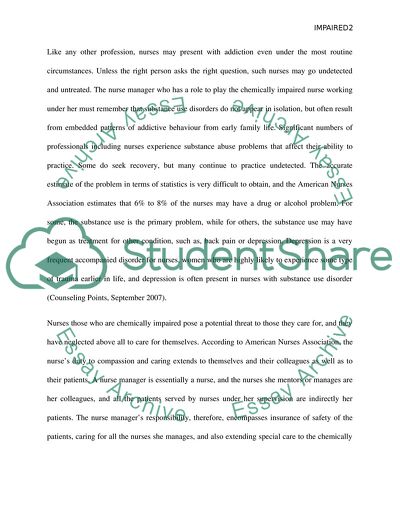Cite this document
(The Chemically Impaired Nurse Article Example | Topics and Well Written Essays - 1907 words, n.d.)
The Chemically Impaired Nurse Article Example | Topics and Well Written Essays - 1907 words. Retrieved from https://studentshare.org/nursing/1710041-the-chemically-impaired-nurse
The Chemically Impaired Nurse Article Example | Topics and Well Written Essays - 1907 words. Retrieved from https://studentshare.org/nursing/1710041-the-chemically-impaired-nurse
(The Chemically Impaired Nurse Article Example | Topics and Well Written Essays - 1907 Words)
The Chemically Impaired Nurse Article Example | Topics and Well Written Essays - 1907 Words. https://studentshare.org/nursing/1710041-the-chemically-impaired-nurse.
The Chemically Impaired Nurse Article Example | Topics and Well Written Essays - 1907 Words. https://studentshare.org/nursing/1710041-the-chemically-impaired-nurse.
“The Chemically Impaired Nurse Article Example | Topics and Well Written Essays - 1907 Words”, n.d. https://studentshare.org/nursing/1710041-the-chemically-impaired-nurse.


